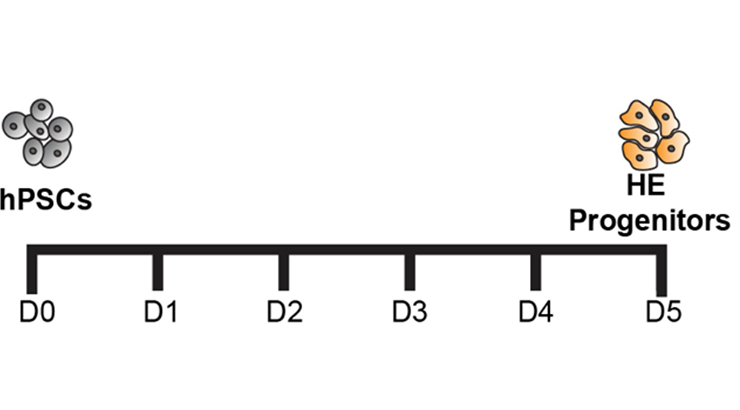Forward Programming of Human Stem Cells into Hematopoietic Stem Cells
ID# 2020-5109
Technology Summary
Penn State inventors have developed a streamlined protocol for the differentiation of human induced pluripotent stem cells (iPSC) into CD34+ hematopoietic stem cells (HSCs). In stark contrast to current differentiation methodologies that utilize multiple factors, this novel method only requires addition or induction of a single transcription factor. While this transcription factor is known to be involved in embryonic developmental, it has not been characterized for its forward programming potential in human iPSCs. The inventors unexpectedly discovered that inducing expression of this single transcription factor in iPSCs is sufficient to drive differentiation of iPSCs into cells of the hematopoietic lineage, including hemogenic endothelial cells and hematopoietic stem cells.
Application & Market Utility
Hematopoietic stem cells (HSCs) are currently in clinically approved therapies for blood cell diseases including, but not limited to, primary immune deficiencies, hemoglobinopathies, as well as storage and metabolic disorders. However, the rate of successful HSC transfer remains constrained, in part, by the availability of donor-patient matches and immunologic complications following implantation. Streamlined protocols to generate HSCs, coupled with known protocols to generate iPSC cells from almost any tissue sample and from any person, may allow for increased therapeutic use of HSCs through expanding the pool of compatible donors and source material.
Next Steps
Seeking industry collaboration and licensing opportunities to drive forward clinical validation and use.

